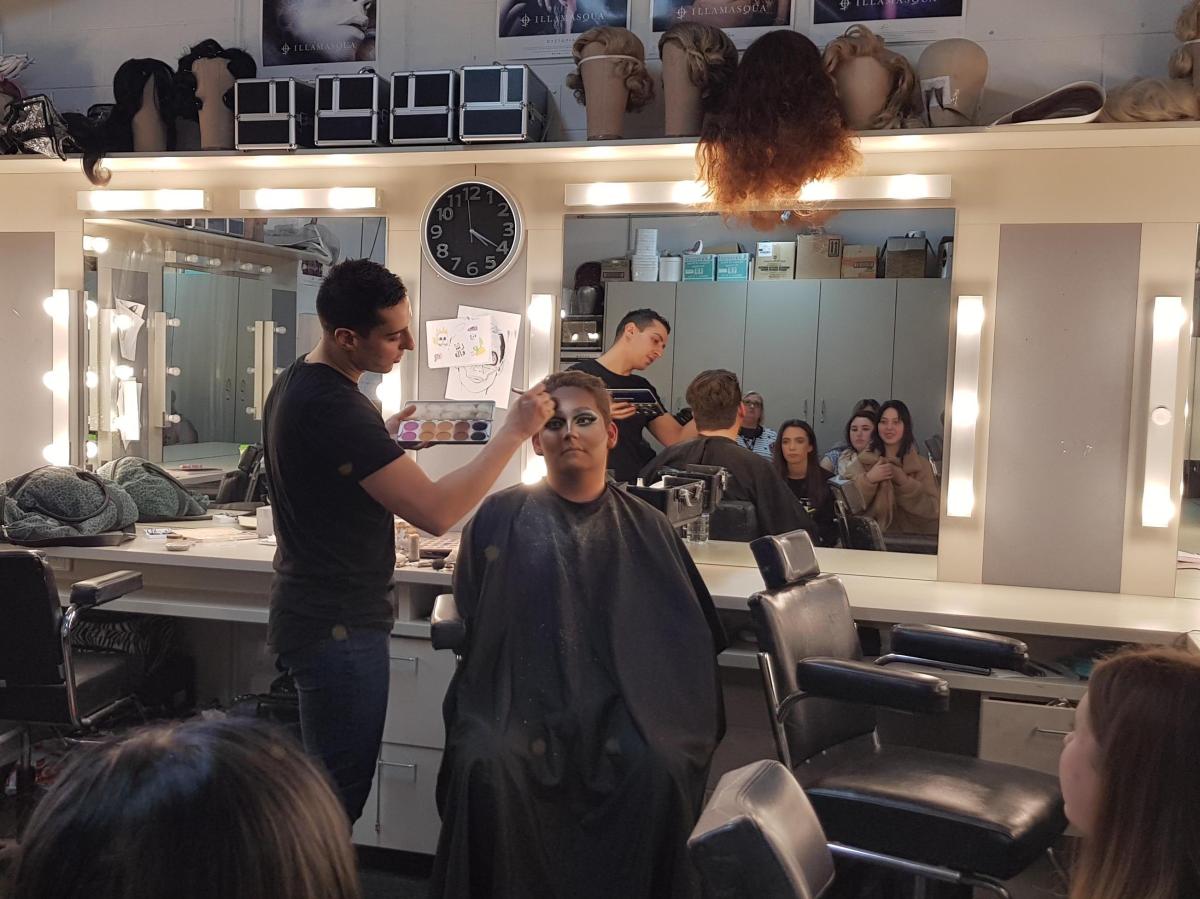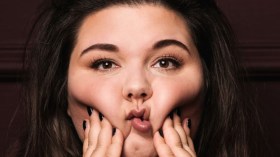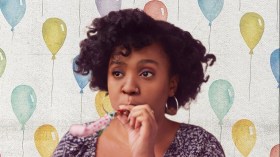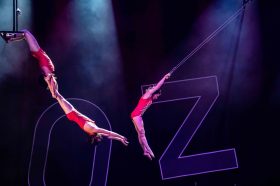A tutor and student at NIDA’s specialist make-up studio. Supplied.
The outdated perception that a career in make-up is a career in a “beauty dominated” industry is starting to shatter.
With the advent of high fantasy dramas hugely popular on our screens and stages, from epic television series such as Game of Thrones and exceptional productions like Wicked, the art of transformation has never been more important.
Contradictory to industry myths, the make-up industry is not predominantly comprised of female artists. ‘In the industry there are a lot of male artists,’ said Catherine Farren-Price, make-up artist and NIDA tutor.
Make-up artists are becoming indispensable in the performing arts industry, as evidenced by the growth of the make-up and cosmetic industry globally. It’s predicted the industry will be worth US $85 billion within six years.
This growth is due in part to globalisation and the corresponding cultural and social changes which accompany it. People are breaking away from gender norms and celebrating diversity. In 2016, model James Charles became the first “CoverBoy” spokesperson for cosmetics brand CoverGirl.
‘There are all sorts of different facets to make-up, and the make-up industry is certainly welcoming and open to men, and non-female identifying people,’ said Diploma of Screen and Media (Specialist Make-up Services) student Annabel Cameron.
Farren-Price teaches the highly regarded Diploma of Screen and Media (Specialist Make-up Services) offered at NIDA. ‘Especially in prosthetics and special effects – many of the artists are male,’ she said.
NIDA’s focus on industry specialisation creates a unique creative course. ‘We have quite a large prosthetics component,’ she said, ‘and that’s one of the reasons NIDA’s make-up course is distinct from many others offered.
‘We actually have a specialist prosthetics expert come in to teach students how to make a full prosthesis. This is a major piece of work: students learn to cast a face, which is not something that’s routinely offered in make-up courses.
‘Students are asked to design a character – they will make a mould and sculpt a full face out of silicone. They will airbrush and colour it, and then apply it on a model,’ Farren-Price said.
‘We also do a huge amount of wig work and wig knotting, at least one day a week during the 12-month course.’
It’s not only gender diversity that is being celebrated in make-up, but diversity in all its forms. In 2017, cosmetics companies Sephora and Dior expanded their ranges to include additional darker shades in their foundations.
‘Inclusivity and representation is central to the student community at NIDA, it’s a safe environment for people to interact with each other,’ said Cameron.
‘We get trained to do make-up on any face. If a make-up artist can’t do their best job on someone who isn’t a white person it’s a let-down – representation is very important for us here.’
Learn more about NIDA’s Diploma of Screen and Media (Specialist Make up Services) and apply for 2019 courses at nida.edu.au.





